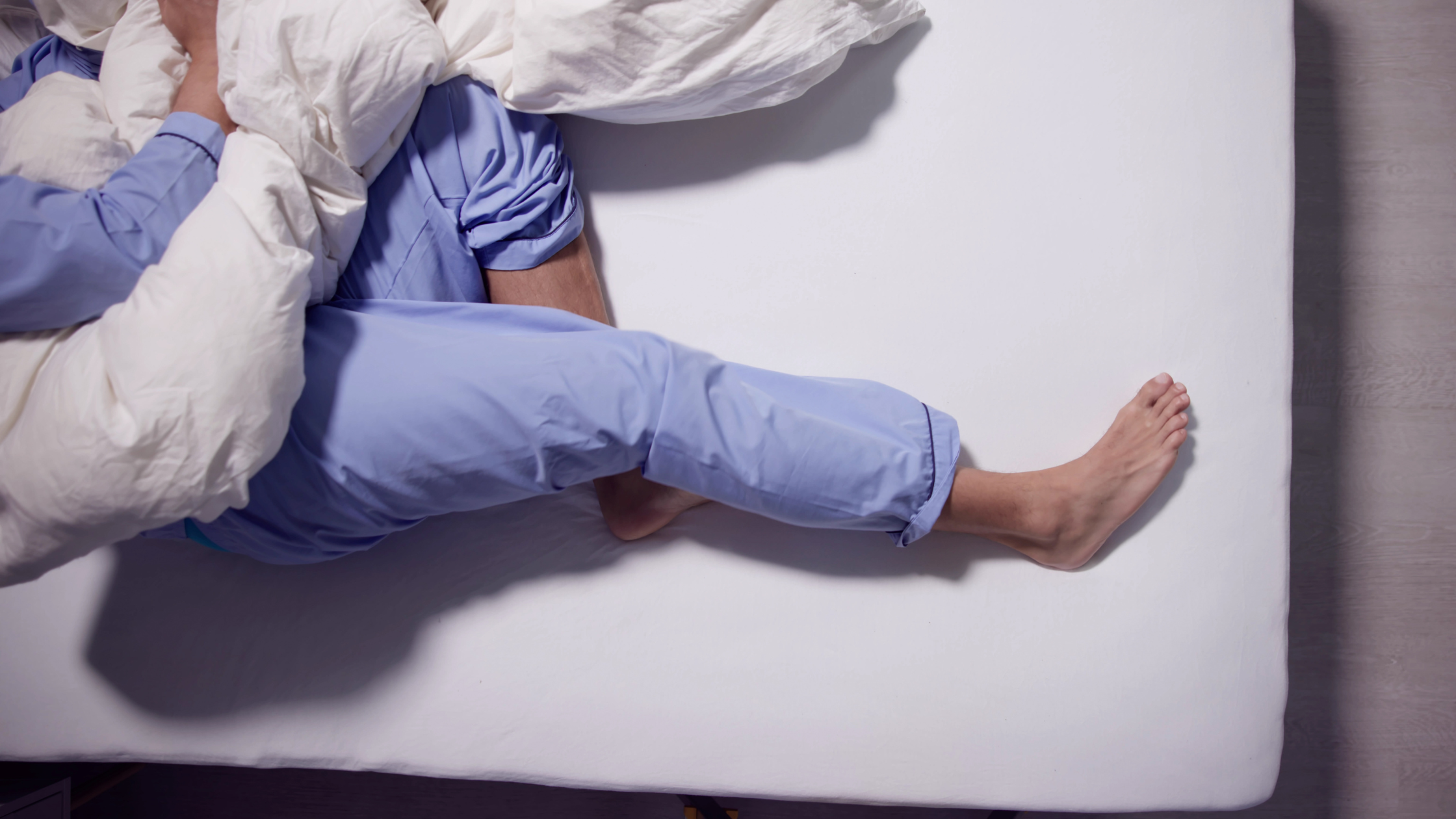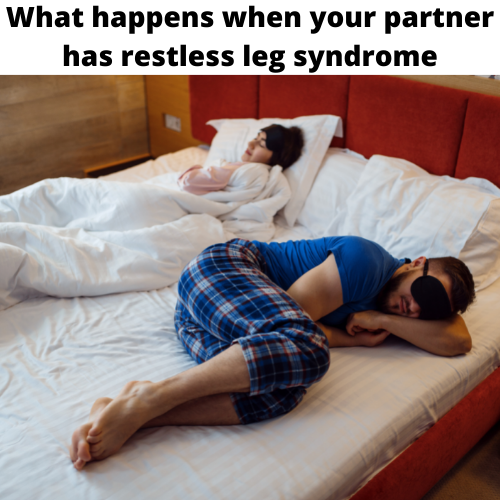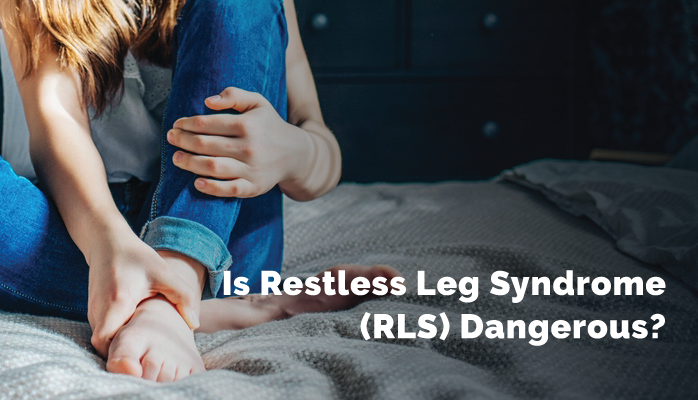You’ve finally settled into bed after a long day, ready to rest—but as soon as you get comfortable, your legs start to tingle, twitch, or ache. The urge to move them is impossible to ignore, and sleep slips farther away. If this sounds familiar, you may be experiencing restless legs syndrome (RLS), a surprisingly common sleep disruption during pregnancy.
Restless Legs in Pregnancy: Why It Happens and How to Find Relief
Restless Legs Syndrome and Fibromyalgia: What’s the Connection?
If you live with fibromyalgia, you already know how challenging it can be to manage widespread pain, fatigue, and disrupted sleep. But what happens when another condition—like Restless Legs Syndrome (RLS)—joins the picture? For many people with fibromyalgia, that uncomfortable urge to move their legs at night isn’t just annoying; it’s part of a complex pattern of symptoms that can deeply affect quality of life.
In this blog post, we’ll explore the connection between fibromyalgia and RLS, how to recognize the symptoms, and what you can do to find relief.
The Differences Between Restless Legs Syndrome and Parkinson's Disease
Restless Legs Syndrome (RLS) and Parkinson's Disease are two neurological conditions that can significantly impact an individual's quality of life. While they share some similarities, particularly in how they affect movement, they are distinct disorders with different causes, symptoms, and treatments. This blog post will explore the key differences between RLS and Parkinson's Disease to help you understand these conditions better.
Tips for Encouraging Your Partner to Get a Sleep Test
If you’ve noticed that your partner has been struggling with sleep, it’s natural to be concerned. Sleep issues can significantly impact overall health, well-being, and quality of life. One effective way to address these concerns is through a sleep test, which can diagnose underlying sleep disorders and lead to effective treatment. However, persuading a partner to undergo a sleep test can be challenging. Here are some practical tips to help you approach the conversation and encourage your partner to prioritize their sleep health.
Restless Legs Syndrome (RLS) vs. Periodic Limb Movement Disorder (PLMD)
Sleep disorders can manifest in various ways, affecting our ability to get a restful night's sleep and impacting overall quality of life. Two related yet distinct conditions that often disrupt sleep and involve involuntary limb movements are Restless Legs Syndrome (RLS) and Periodic Limb Movement Disorder (PLMD). In this blog post, we'll delve into the differences between these two conditions, their symptoms, causes, and potential treatment options.
The Link Between Magnesium and Restless Legs Syndrome
Restless legs syndrome (RLS) is a sleeping disorder where one feels a compulsive need to move their legs at night in order to relieve a stinging or pinpricking sensation. This constant movement interrupts the sleeper and any bed partners. Often, those uncomfortable sensations are relieved by the individual getting out of bed and walking around.
These uncomfortable sensations seem to worsen during inactivity, so one may become more aware of them while sitting down or lying down. While there is no active cure for them, there are some medications that can relieve these feelings. One popular medication is called Ropinirole, and can help calm down those sensations for improved sleep. However, if you would like to try something a bit more natural, then magnesium may due the trick.
Magnesium is a natural mineral that our bodies need to function. It plays a role in regulating different biochemical reactions in the body. A magnesium deficiency can cause issues with nerve impulse conduction, muscle contractions, and cramps. Continue reading to learn more about the impact that magnesium may have on RLS.
Sleep disorders have one thing in common, they interrupt sleep. Therefore, it's important that if you have a sleep disorder, you find the problem before the accumulation of interrupted sleep leads to chronic sleep deprivation. Sleep deprivation is more than just being tired. It can negatively impact several organ systems, including your heart. Heart disease is the number one cause of death worldwide, so it's important to do everything possible to maintain its health - including getting enough sleep. Continue reading to find out how common sleeping disorders can lead to cardiovascular disease!
Restless leg syndrome is a sleep disorder that involves constant movement of the legs to relieve pain, itchiness, discomfort, tingling, and any other movement that can disrupt your sleep. There are a few documented causes for restless leg syndrome, but did you know one of them is anemia? If you have restless leg syndrome but have not been able to figure out the cause, it may be due to anemia. Continue reading to find out how Annie Mia may play a role in your sleep disorder.
What happens when your partner has restless leg syndrome
If your partner is struggling with restless leg syndrome, then they are struggling with getting a good night's sleep...but so are you. This struggle can put a lot of strain and pressure on the relationship, as a lack of sleep can negatively affect interpersonal relationships. However, before you start sleeping in different bedrooms, there may be some things that you both can try to help then get more relief, and both of you get more sleep. Keep reading to find out what you can do.
Why RLS is a Problem?
Restless leg syndrome (RLS) is a nervous system disorder that causes uncomfortable feelings in your legs (and other extremities) during the night. RLS can cause enough discomfort to interfere with sleep which is why it is considered a sleep disorder. This discomfort can cause you to wake up and move your leg to ease the discomfort, which can make it hard to fall back asleep.
The bad news is that this is a vicious cycle, as the sleep deprivation may in turn also worsen your symptoms. Also, people with mild or intermittent RLS may have their RLS go undetected or misdiagnosed, which in means their sleep deprivation may go with improvement.
The good news is that this sleep disorder does not usually require medication and there are things you can do to improve it.










